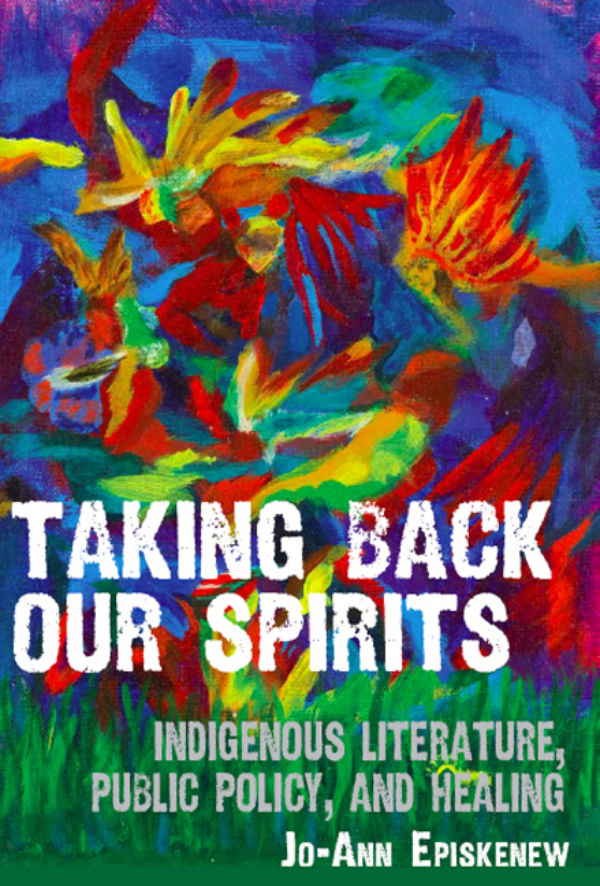Cassandra J. Opikokew interviewed Jo-Ann Episkenew for YOURblog: Your Official University of Regina Blog in June 2011.
Why did you write this book? Why did you feel it was important?
“This book was originally my Ph.D. thesis. The first time I presented at an English conference, I heard a speaker from the Association for Bibliotherapy and Applied Literature and suddenly the relationship between narrative and healing just made sense. That and other experiences, such as an article I was asked to write for a policy journal, began to shape these connections in my mind. It became very clear that this was what I wanted to write about – I just had to convince my supervisor it was all one, related topic! So the book was originally my Ph.D. thesis and I had to publish to get my degree from Ernst-Arndt-University in Griefswald, Germany. In the German system, publishing your dissertation is a requirement, but I never envisioned the book taking on a life of its own.”
If you had to sum up what your book was about in a few sentences, how would you describe it?
“My book is about the damage that the poorly conceived policies of the Canadian government have inflicted on Indigenous people through making white privilege and attitudes of superiority a cultural norm that Canadians do not question. It is also about the ways that Indigenous literature can heal both writers and readers.”
What did you learn from writing this book? What sticks with you?
“I think that I also understood intuitively the healing power of literature. I’ve been a life-long book worm. What sticks with me is what I learned about how this healing power actually operates, and I am committed to studying further how to transfer my skills in literary analysis to my work in health research.”
You discuss literature as a form of healing. How do stories, health, and policy connect?
“Canadian government policies have injured Indigenous people individually and collectively. They are responsible for the education deficit, chronic disease, poverty, and violence in our communities to name but a few. Without access to the discourse of public policy, Indigenous people had to turn to the only discourse available to critique Canadian government policies, and that was their stories. When I’ve experienced trauma, my mind is like a hamster on a treadmill, but by writing it down the feelings move from the inside to the outside where they can be examined and better understood. Telling our stories is an act of agency, of empowerment, and that can be incredibly healing. When my mind is like a hamster on a treadmill, it is healing to read the story of someone who has suffered a similar experience. Sometimes her story helps me shape my story, which is also healing.”
How does your work for the book connect to what you do now?
“I have been applying the skills that I learned in literary studies, especially close readings of the text, to my work with Indigenous people. We are our stories, and each story can be analyzed for setting, plot, and character.”
What’s next for you as an author? Any other works on the way for readers?
“I will be editing a collection that will contain the stories of research done by my colleagues at the Indigenous Peoples’ Health Research Centre. We have wonderful stories of research that have changed the health research landscape in Saskatchewan, and those stories need to be told in way that is accessible for the community.”
Thanks to Cassandra and YOURblog for allowing UMP to share this content!


